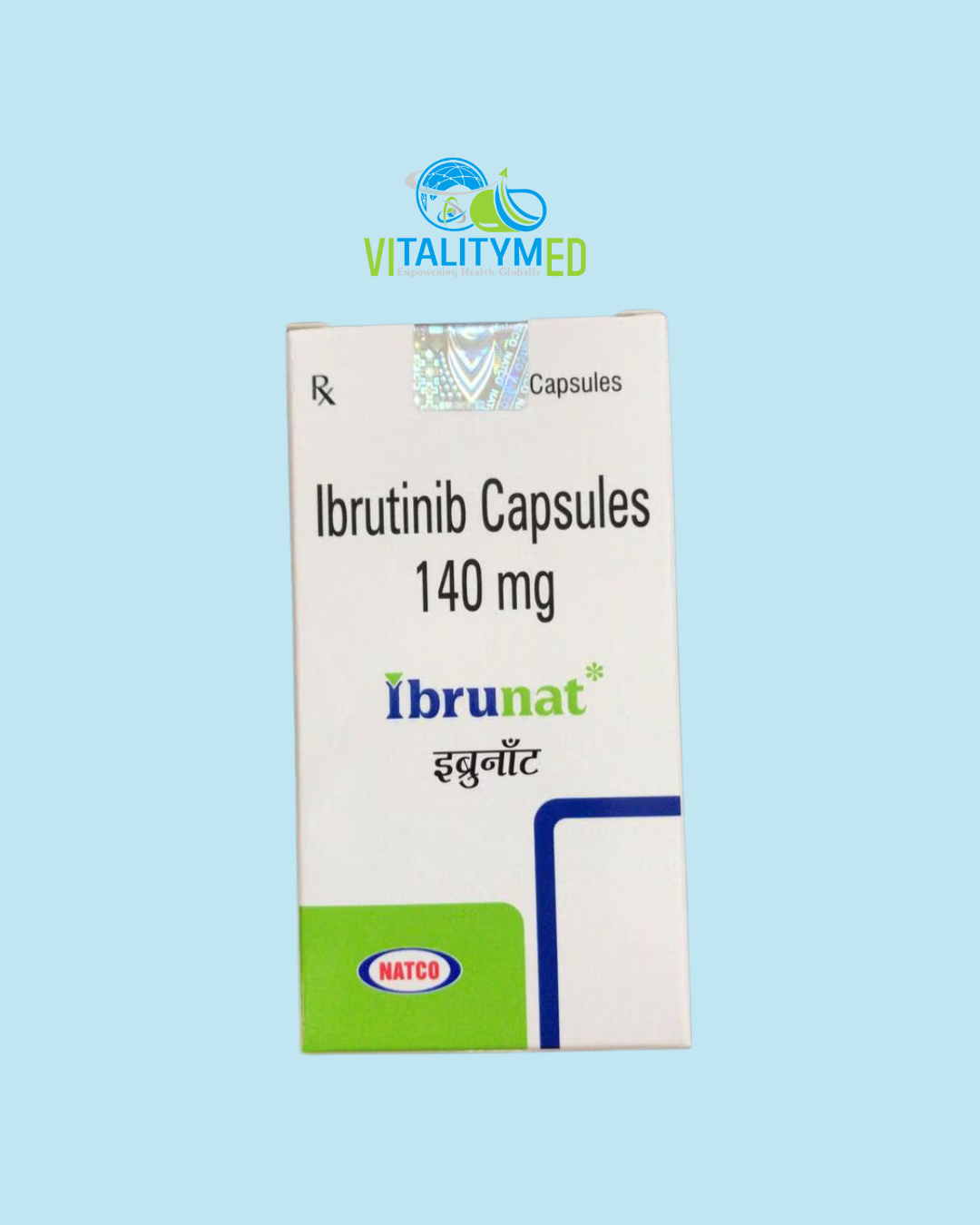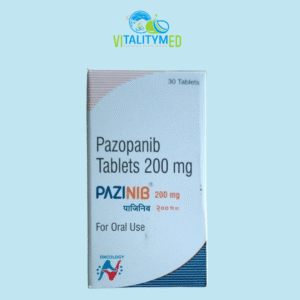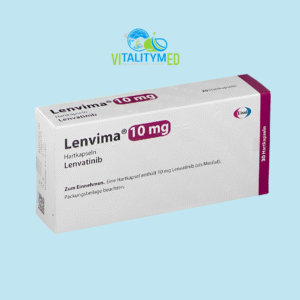Ibrunat contains Ibrutinib, a targeted oral therapy used for treating certain types of blood cancers. It is part of a class of medicines known as Bruton’s tyrosine kinase inhibitors. Ibrunat works by specifically blocking abnormal signals that allow cancerous B-cells to grow and survive. It is widely used in chronic lymphocytic leukemia, mantle cell lymphoma, and other B-cell malignancies, especially in cases where previous treatments have failed or when the disease is advanced.
Mechanism of Action
Ibrutinib acts by inhibiting an enzyme called Bruton’s tyrosine kinase. This enzyme plays an important role in the survival and development of B-cells, which are a type of white blood cell. In certain cancers, B-cells become abnormal and multiply uncontrollably. By blocking this enzyme, Ibrunat disrupts the signals that encourage cancer cell growth and survival. This leads to the gradual death of cancerous cells and slows down disease progression. The targeted nature of this medicine helps limit damage to healthy cells.
Uses
Ibrunat is used to treat several types of blood cancers, including:
-
Chronic lymphocytic leukemia, both newly diagnosed and relapsed cases
-
Small lymphocytic lymphoma, which behaves similarly to chronic lymphocytic leukemia
-
Mantle cell lymphoma in patients who have received prior treatment
-
Waldenström’s macroglobulinemia, a rare and slow-growing type of lymphoma
-
Marginal zone lymphoma in specific cases
-
Chronic graft-versus-host disease in patients who have not responded to standard treatments
Adverse Effects
While many patients tolerate Ibrunat well, it may cause some side effects. Common effects include diarrhoea, tiredness, muscle and joint pain, bruising, and rash. Some people may also experience headaches or nausea.More serious side effects may include irregular heartbeats, high blood pressure, bleeding problems, and a risk of infections due to low immunity. In rare cases, there may be an increased risk of developing other cancers, including skin cancer. Because Ibrutinib can affect blood cells and heart function, regular monitoring is important throughout treatment.
Patients are encouraged to report any signs of infection, unusual bleeding, chest discomfort, or rapid heartbeat to their healthcare provider promptly.







